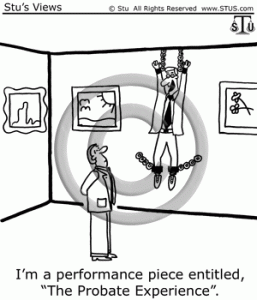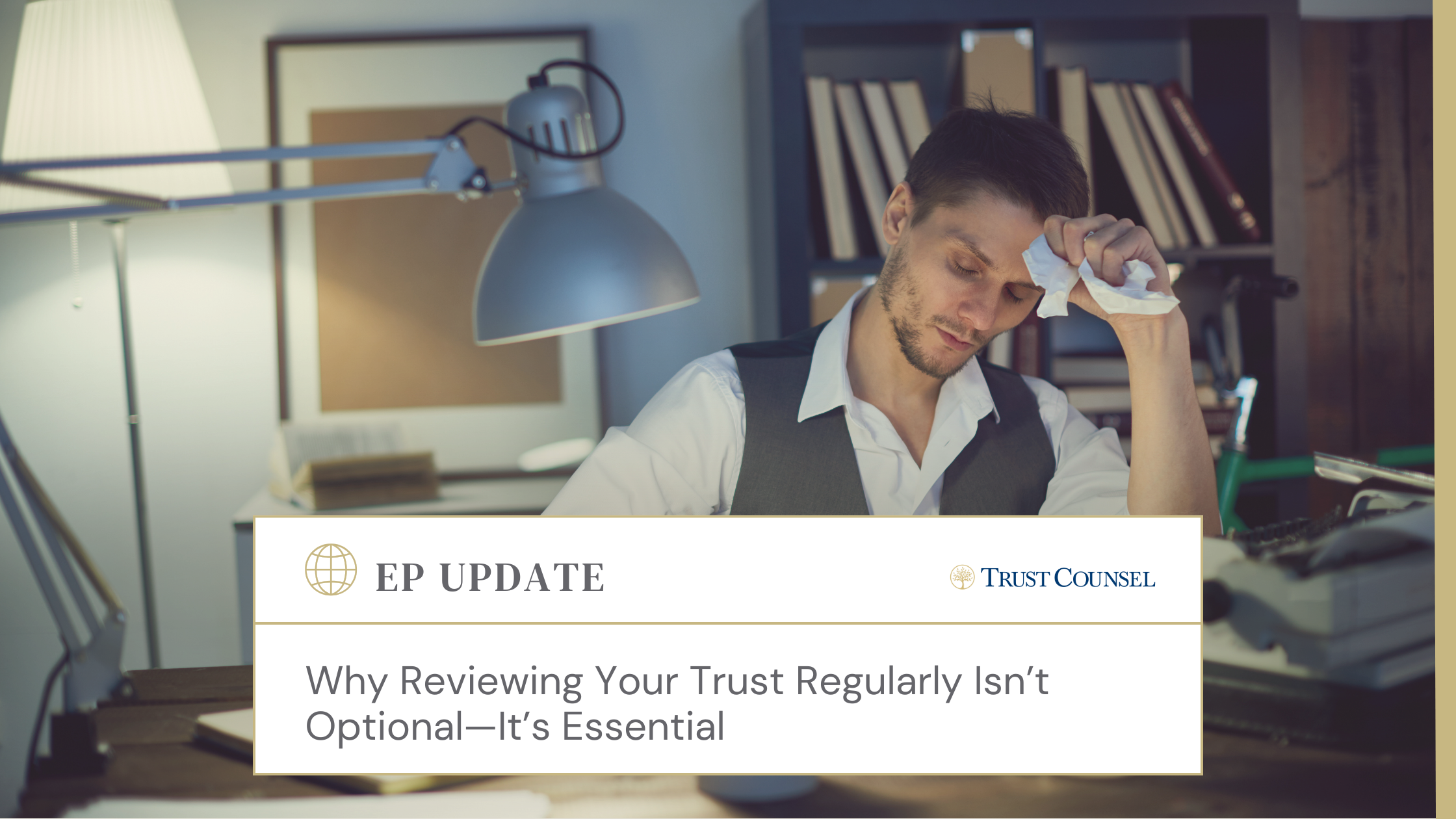 Some people claim that FLORIDA is a “probate friendly” state and therefore, families don’t need to avoid probate. I’ve even heard some lawyers (that clearly don’t practice in the area of Estate Planning) say that because Florida has adopted the Uniform Probate Code, its “streamlined” process means that probate is easy and doesn’t take much time at all. I’m here to say, as clearly and boldly as I can, that’s a bunch of who-ha!!!
Some people claim that FLORIDA is a “probate friendly” state and therefore, families don’t need to avoid probate. I’ve even heard some lawyers (that clearly don’t practice in the area of Estate Planning) say that because Florida has adopted the Uniform Probate Code, its “streamlined” process means that probate is easy and doesn’t take much time at all. I’m here to say, as clearly and boldly as I can, that’s a bunch of who-ha!!!
Here’s why:
- Probate replaces the head of your household with a court system—a judge. Nothing embodies the utter and complete loss of sovereignty over one’s own family more than putting an unfamiliar, far-reaching system at the head of your family. A court becomes the decision-maker for your family’s financial life through the pendency of probate. Yes, the judge must use the Probate Code to guide their decisions. Nevertheless, it’s someone else, using someone else’s rules to manage your family’s financial lives.
- Your family has little access to assets during Probate. I have a case now where it’s a catch-22; the family doesn’t really have the money to pay a lawyer to probate the bank accounts her father left behind because all the money is in the BANK! Sure, we could file an emergency motion to go argue before a judge… but that means a hearing, which costs money… see the problem!
- Your family has to WAIT for the leftovers! My Mentor once told me many years ago: “Probate is a lawsuit you file against yourself, after you die, for the benefit of your creditors.” Your family only gets what’s leftover after your creditors have been paid and they have to wait to get that until after the statutory claims period. When you add time in for opening a probate, and closing a probate, they’ve likely waited easily six months. If there are any snags in the process at all, it will just take longer to iron them out. Some estates are many years old…with no end in sight.
- Probate is costly, even when streamlined. I’ve tried. I cannot find even one lawyer who is willing to open a probate for less than a $2500 retainer… and I like to joke that I tag on an additional $1000 for every ex-wife because there are ALWAYS issues that come up. Remember that probate, even informal probate, is a detailed statutory process requiring the personal representative and his or her attorney to hit precise marks without fail (lest the probate stall or be challenged). Any attorney worth their salt will charge $250+/hour to probate an estate. Even at that low hourly fee, that’s only ten hours of work before the retainer is gone and has to be replenished. Just taking an inventory and opening probate can take ten hours easily. It does not take much at all to rack up a probate bill of $5,000 and more, even with insolvent estates!
- The exact same steps that have to be taken in “formal” probate have to be taken in “informal” probate or Summary Administration. I hear lawyers say that probate isn’t expensive because we can do it informally… But a lot of times, even when there are small assets at stake, it just can’t be done. For example, if the beneficiaries don’t all consent to the Personal Representative in the Summary Administration then we can’t go forward with the informal procedure and with more and more blended families in the mix this is happening more and more often.
- A Will is not a “hall pass” from probate; it is only the replacement of your wishes for the probate code defaults. Many, many people believe that having a Will avoids probate. It does not. A Will assures probate. There is only one solid way to avoid it and that is by deliberately, consciously taking your probate assets out of the courtroom and placing them in a fully-funded revocable living trust.
- Probate is totally PUBLIC. Yup, that’s right. Everyone can see what it is your family is getting. It’s public record. That is why everyone can see Michael Jackson’s or Anna Nicole Smith’s Will.
- Probate gives your family a venue to fight over money. This is true particularly if you are leaving significant assets behind.

A trust is a private contract controlling your financial life if you’re incapacitated and when you die. By dealing with your financial life privately, you keep your family needs of primary importance. Of course, we want your debts to be paid, be we do not want them to take priority over your family.
A revocable living trust has the effect of putting creditors where they belong (at the back o’ da bus) retaining sovereignty of your financial life within your family and with whom you choose to “entrust” your finances. A trust-based plan puts the onus to pay creditor claims on the creditors themselves. If they’re not satisfied with the debt payment they receive, they can take your fiduciary to court, rather than your fiduciary going to court and inviting them to the table.
That is the proper, family-centric way to handle your financial resources and has the added bonus of clearing our already overcrowded court system from cases that we can handle privately. Win-win-win for everyone. (And I haven’t even addressed the asset protection features a trust can give!)
There are exceptions to this, though. For some families, probate is actually the favored way to deal with creditors. I bet you can guess when that might be. Yes, that’s right. When there’s not enough money to pay those creditors. An insolvent estate is the only estate where we truly do want the protections that formal probate closure can offer. When creditors are not going to get paid, we do want to shut off their claims forever, which is the ONLY benefit to probate. So, if you’re solvent, you should consider a revocable living trust as the more powerful, more loving, more complete planning tool available to you.
If you’d like to learn more about anything you read here, call our office today or email my friendly assistant Jackie at [email protected] to schedule a time for us to sit down and talk.





